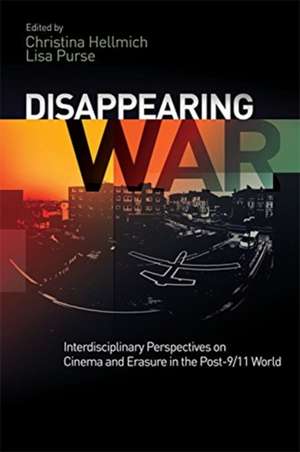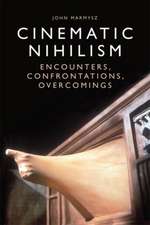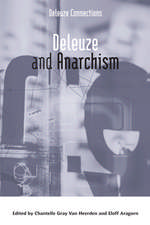Disappearing War
Editat de Christina Hellmich, Lisa Purseen Limba Engleză Paperback – 10 aug 2018
| Toate formatele și edițiile | Preț | Express |
|---|---|---|
| Paperback (1) | 159.53 lei 3-5 săpt. | |
| EDINBURGH UNIVERSITY PRESS – 10 aug 2018 | 159.53 lei 3-5 săpt. | |
| Hardback (1) | 552.29 lei 3-5 săpt. | |
| EDINBURGH UNIVERSITY PRESS – 27 feb 2017 | 552.29 lei 3-5 săpt. |
Preț: 159.53 lei
Preț vechi: 178.99 lei
-11% Nou
Puncte Express: 239
Preț estimativ în valută:
30.53€ • 33.15$ • 25.64£
30.53€ • 33.15$ • 25.64£
Carte disponibilă
Livrare economică 01-15 aprilie
Preluare comenzi: 021 569.72.76
Specificații
ISBN-13: 9781474437523
ISBN-10: 1474437524
Pagini: 216
Ilustrații: Illustrations, unspecified
Dimensiuni: 155 x 229 x 13 mm
Greutate: 0.34 kg
Ediția:90,000 edition
Editura: EDINBURGH UNIVERSITY PRESS
ISBN-10: 1474437524
Pagini: 216
Ilustrații: Illustrations, unspecified
Dimensiuni: 155 x 229 x 13 mm
Greutate: 0.34 kg
Ediția:90,000 edition
Editura: EDINBURGH UNIVERSITY PRESS
Notă biografică
Christina Hellmich is Associate Professor in IR & Middle East Studies at the University of Reading
Dr Lisa Purse is Associate Professor in Film in the Department of Film, Theatre & Television at the University of Reading.
Dr Lisa Purse is Associate Professor in Film in the Department of Film, Theatre & Television at the University of Reading.
Descriere
Looking at a range of films that have provoked debate, from award-winning features like' Zero Dark Thirty' and 'American Sniper', to documentaries like 'Kill List' and 'Dirty Wars',this book examines the practices of erasure in the cinematic representation of recent military interventions.
Cuprins
Illustrations
Contributors
Acknowledgments
1. Introduction: Film and the epistemology of war, Christina Hellmich & Lisa Purse
2. Good Kill? U.S. soldiers and the killing of civilians in American film, Cora Sol Goldstein
3. '5000 feet is the best': drone warfare, targets, and Paul Virilio's 'accident', Agnieszka Piotrowska
4. Post-heroic war / the body at risk, Robert Burgoyne
5. Disappearing bodies: visualising the Maywand District murders, Thomas Gregory
6. The unknowable soldier: the face of Freddie Quell, James Harvey-Davitt
7. Visible dead bodies and the technologies of erasure in the war on terror, Jessica Auchter
8. Ambiguity, ambivalence and absence in Zero Dark Thirty, Lisa Purse
9. Invisible war: broadcast television documentary and Iraq, Janet Harris
10. Nine cinematic devices for staging (in)visible war and the (vanishing) colonial present, Shohini Chaudhuri
11. Afterword: Reflections on knowing war, Christina Hellmich
Contributors
Acknowledgments
1. Introduction: Film and the epistemology of war, Christina Hellmich & Lisa Purse
2. Good Kill? U.S. soldiers and the killing of civilians in American film, Cora Sol Goldstein
3. '5000 feet is the best': drone warfare, targets, and Paul Virilio's 'accident', Agnieszka Piotrowska
4. Post-heroic war / the body at risk, Robert Burgoyne
5. Disappearing bodies: visualising the Maywand District murders, Thomas Gregory
6. The unknowable soldier: the face of Freddie Quell, James Harvey-Davitt
7. Visible dead bodies and the technologies of erasure in the war on terror, Jessica Auchter
8. Ambiguity, ambivalence and absence in Zero Dark Thirty, Lisa Purse
9. Invisible war: broadcast television documentary and Iraq, Janet Harris
10. Nine cinematic devices for staging (in)visible war and the (vanishing) colonial present, Shohini Chaudhuri
11. Afterword: Reflections on knowing war, Christina Hellmich


















